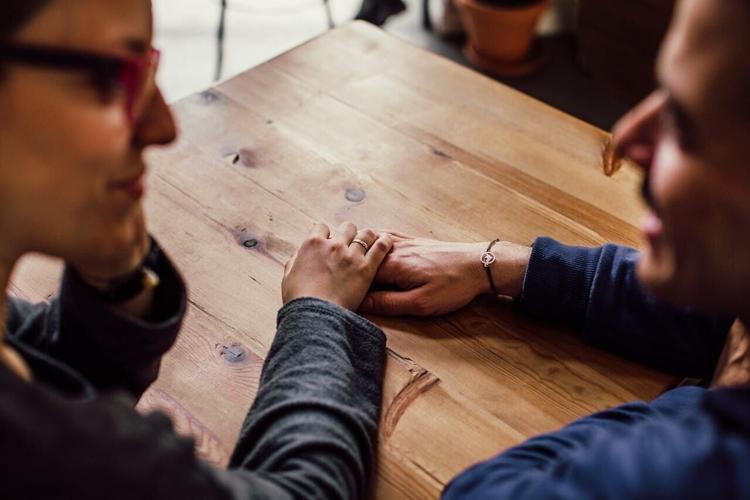
(Photo by Juan Pablo Serrano via Pexels)
By Freddie Noble
A has shared the one thing preventing people from finding long-lasting love.
, 52, has worked with thousands of singletons for over 25 years to help them find the one or rebuild their relationships.
She is a trained psychologist and coach, , attachment styles, and intergenerational trauma.
Gloria says the one thing holding back singletons from finding love is focusing too much on the other person, rather than themselves.
She suggests people "try to be the right person for your future partner - instead of focusing on finding the right person for you".
She encourages people to understand their background, childhood and make sure they are healed before entering a relationship, so they can be the best version of themselves.

(Photo by Jep Gambardella via Pexels)
Gloria, from Vancouver, Canada, said: "My best advice is don’t try to find the right partner. Everyone has their own checklist, and we all present ourselves in the best way at the start of the relationship.
"Instead of finding the right partner, become the right partner and use your own checklist to see if you are the right person for your future partner. It's important to know that external factors don’t last, but internal ones do.
"If you have the mindset that you are in a team and it's not about your wants or needs, then this is a good sign.
"Also, having the humility to take feedback from your partner, take accountability, and be open to putting your hands up after you've done something wrong is really powerful.
"Also, having a growth mindset and always wanting to be the right partner can go a long way. It doesn't matter who you end up with, you will keep repeating the same pattern until you become the right person."
Gloria works with people at all stages of life, whether they are looking to settle down and meet a life partner, looking to tie the knot but working through issues or who have been married for decades.
She said: "The most common problems I face is by far is communication difficulties in their relationship and differences in things like how to raise the kids, how they deal with finances and personality differences.
"There are no qualities that can be bad, but it’s how you use the quality. If I say I’m organised, it can come across as really controlling, and it’s all about how you perceive the trait.
"Someone can say that she is a great talker and honest, and then that he is a great listener, but five years later, that can all change.
"This means that they have a negativity bias, and we start to interpret things negatively, which can ultimately affect the relationship.
"We have negativity bias, meaning that we focus more on the negatives than the positives, where couples can train their brains to focus on the positives rather than the negatives.

(Photo by Ivan Samkov via Pexels)
"I invite the couple five years later to see if the problems remain. I tell them like it’s a dentist appointment, and that they should have regular check-ups."
During Gloria's one-on-one meetings she says she can tell if the couple will last after just five minutes from the first exchange.
For example, if a couple is late and one says they are 'really sorry for the lateness' and the other says 'it's their fault', Gloria can identify that they won't last until they attend her session where she will clear this problem up.
She encounters this dynamic in .
Gloria claims this encounter is the most common pattern in a relationship, dubbing it the 'pursuer-retreater couple'—in which one person is the more critical one, usually the female, 80% of the time, and the male withdraws because he is usually less emotional.
She said: "This is the most common dynamic type of relationship I see. Women, in general, are raised to be more social, and men are raised to be more independent.
"Women get a head start to be very relational, whereas men get the opposite.
Gloria defines love as more of a verb than a feeling and says the feeling "comes from the action".
She said: "Love is how you show it in the daily gestures. It's the small things that you do that convey the message that you care about the person.
"Micro moments build trust in the . Micro moments are how you build interest and a connection.

(Photo by Gerardo Manzano via Pexels)
"The little things show care, and it's also about considering your partner's needs and elevating your partner so they become the best version of themselves."
Gloria also believes in 'dating fatigue'—which is when you go out with someone and you immediately know you are not meant for each other. If you do this, say, 100 times, you will burn out.
Gloria said: "People like to date intentionally and look for internal factors - like emotional intelligence - rather than the external stuff - like their achievements.
"The internal markers make you a good partner, meaning you have good emotional intelligence, and you are kind as well, taking accountability and apologizing when you are in the wrong.
"When you are sexually active, it gives you a good feeling, but it doesn’t sustain love. Most of the time it is infatuation and that is attraction which can fade over time. People substitute physical attraction and sex for love.
"I would say don't be all in until you have your good first fight.
"You need to see the ugly side of the other person because that will tell you a lot about what life will be like for the next 50 years."



